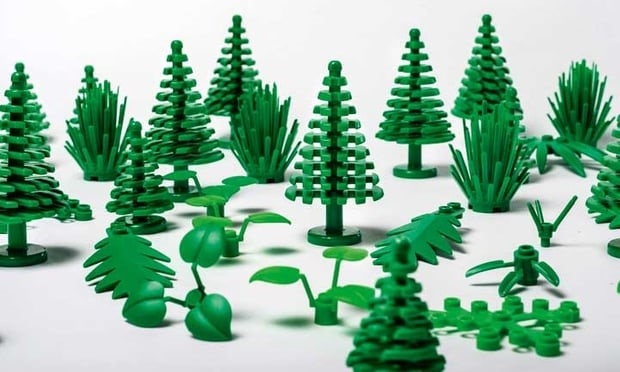Lego aims to keep all of its packaging out of landfills by 2025

Lego, the 85-year-old Danish toy company, has announced their commitment to create and use more sustainable packing and products in the coming years. Lego’s goal is to keep all of its packaging from landfills by 2025, something they hope to accomplish by removing plastic bags from its card board packaging.
In addition to the push for more sustainable packaging, Lego has also turned its attention to the production of their trademark colourful plastic building blocks. The company says it wants to eliminate its dependence on petroleum-based plastics and build its toys entirely from plant-based or recycled materials by 2030.
“At Lego we want to make a positive impact on the world around us, and are working hard to make great play products for children using sustainable materials” said Tim Brooks, vice-president of environmental responsibility at the Lego Group.
According to Brooks, the company emits about one million tons of carbon dioxide each year. In the hopes of reducing the company’s dependence on petroleum-based plastics, the company has begun extensive research into potential options for replacing the plastic in the blocks.
One challenge Lego faces in achieving these goals is the need to change the materials that are used to create the blocks, while simultaneously keeping the product exactly the same in terms of its colour, durability, and precision.
These new goals set out by Lego come at a time where consumers all around the world are increasingly voicing their concerns about the effects of plastic waste on the environment. But Lego is not alone in their efforts to reduce their impact on the environment. Large companies such as Coke and Unilever have also announced plans aimed at improved sustainability to be carried out in the coming years.
In response to this trend, David Blanchard, Unilever’s head of research and development explains that with so many influential businesses changing their practices, recycling will “become the norm.”
The AIDF Global Summit will return to Washington D.C, in 2019.
If you’d like to stay informed on the latest updates in aid and development, please sign up for the AIDF newsletter.
Photo Credit: Maria Tuxen Hedegaard/Lego















